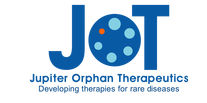预约演示
更新于:2025-05-07
IVI Madrid SL
更新于:2025-05-07
概览
关联
1
项与 IVI Madrid SL 相关的药物作用机制 NLRP3抑制剂 [+1] |
最高研发阶段临床2期 |
首次获批国家/地区- |
首次获批日期- |
49
项与 IVI Madrid SL 相关的临床试验NCT06244745
Clinical and Endocrinological Effects of Letrozole During the Luteal Phase After Controlled Ovarian Stimulation in Oocyte Donors: a Low Interventional, Randomized, Controlled Trial
The objective of this trial is to determine whether the use of letrozole during the luteal phase in oocyte donors diminishes the ovarian volume, as well as to evaluate its effect on the duration of the luteal phase, taking into account hormonal and biochemical markers.
Two groups will be established with random allocation of patients and 1:1 proportionality, as follows:
Control group: No specific treatment.
Study group: Oral administration of letrozole 5 mg (each capsule is 2.5 mg) once a day for 5 days starting on the night of the follicular puncture.
Two groups will be established with random allocation of patients and 1:1 proportionality, as follows:
Control group: No specific treatment.
Study group: Oral administration of letrozole 5 mg (each capsule is 2.5 mg) once a day for 5 days starting on the night of the follicular puncture.
开始日期2023-12-15 |
申办/合作机构 |
NCT06384794
Study of the ZyMōt Sperm Selection Method and Its Effect on Embryo Ploidy.
It has been described that 11% of men with semen values within the normal range established by the World Health Organization (WHO) have sperm DNA fragmentation. This has been associated with a lower fertilization rate, lower embryo development and, therefore, lower reproductive success. Focusing on the study of the integrity of the male genome can provide us information to diagnose infertility in the couple. The use of conventional sperm selection methods such as swim-up or density gradients has been a great advance in the improvement of male fertility. However, these methods use centrifugation in their protocol, a procedure that has been associated with sperm DNA damage. The ZyMōt is a chip based on microfluidic properties that allows the recovery of spermatozoa with lower DNA fragmentation rate without centrifugation of the semen sample. This new sperm selection method maintains all the advantages of conventional techniques, but decreasing DNA fragmentation associates to sperm recoveries techniques eventually improving reproductive rates. This quality would be beneficial for patients with unexplained infertility, recurrent pregnancy loss or clinical varicocele, factors that have been associated with a higher index of DNA fragmentation. However up to date there is evidence-based data supporting such improvement. The main objective of the present project is to evaluate the ZyMōt as a new non-invasive sperm selection device and to see its impact on the euploidy rate, comparing it with a sperm selection technique that is routinely used in the clinic: swim-up. At the same time, the effect that this new chip may have on sperm and other reproductive variables will be analyzed clinically, and molecularly with immunohistochemical and transcriptomic analyses in order to observe the impact of SDF(sperm DNA fragmentation) at the molecular and genomic level in oocytes with low reparative potential oocytes.
开始日期2023-06-29 |
申办/合作机构 |
NCT05606679
Maternal KIR and Fetal HLA Influence Reproductive Success in ART-oocyte Donor.
The present project is an ambispective study designed to answer how HLA-F SNPs, as well as KIR-HLA-C compatibility, influence reproductive outcomes in oocyte donation cycles. On the one hand, healthy patients without history of RIF and RM and with indication of egg donation cycle as ART treatment will be genotype for KIR, HLA-C and HLA-F. HLA-C from male partners and egg donors will be also analyzed. No matching based on HLA-C genotypes would be performed and donors would be assigned to recipients following the routine clinical practices. After SET, patients will be followed up until delivery or until the end of treatment. On the other hand, access to data from patients who have equally undergone oocyte-donation cycles, who meet the inclusion criteria and who have been genotyped for KIR and HLA-C as a matter of routine practice, will be requested.
For this study, only the first SET of oocyte-donation that patients undergo will be considered. LBR will be the primary endpoint of the study. In addition, secondary endpoints such as embryo development, sustained implantation, progesterone levels, implantation failure, miscarriage rate and unwanted events (preeclampsia, fetal grow restriction, premature birth, low birth weight…) will also be evaluated.
For this study, only the first SET of oocyte-donation that patients undergo will be considered. LBR will be the primary endpoint of the study. In addition, secondary endpoints such as embryo development, sustained implantation, progesterone levels, implantation failure, miscarriage rate and unwanted events (preeclampsia, fetal grow restriction, premature birth, low birth weight…) will also be evaluated.
开始日期2022-11-01 |
申办/合作机构 |
100 项与 IVI Madrid SL 相关的临床结果
登录后查看更多信息
0 项与 IVI Madrid SL 相关的专利(医药)
登录后查看更多信息
100 项与 IVI Madrid SL 相关的药物交易
登录后查看更多信息
100 项与 IVI Madrid SL 相关的转化医学
登录后查看更多信息
组织架构
使用我们的机构树数据加速您的研究。
登录
或

管线布局
2025年11月03日管线快照
管线布局中药物为当前组织机构及其子机构作为药物机构进行统计,早期临床1期并入临床1期,临床1/2期并入临床2期,临床2/3期并入临床3期
其他
1
登录后查看更多信息
当前项目
| 药物(靶点) | 适应症 | 全球最高研发状态 |
|---|---|---|
白藜芦醇 ( NLRP3 x SIRT1 ) | 不孕 更多 | 无进展 |
登录后查看更多信息
药物交易
使用我们的药物交易数据加速您的研究。
登录
或

转化医学
使用我们的转化医学数据加速您的研究。
登录
或

营收
使用 Synapse 探索超过 36 万个组织的财务状况。
登录
或

科研基金(NIH)
访问超过 200 万项资助和基金信息,以提升您的研究之旅。
登录
或

投资
深入了解从初创企业到成熟企业的最新公司投资动态。
登录
或

融资
发掘融资趋势以验证和推进您的投资机会。
登录
或

生物医药百科问答
全新生物医药AI Agent 覆盖科研全链路,让突破性发现快人一步
立即开始免费试用!
智慧芽新药情报库是智慧芽专为生命科学人士构建的基于AI的创新药情报平台,助您全方位提升您的研发与决策效率。
立即开始数据试用!
智慧芽新药库数据也通过智慧芽数据服务平台,以API或者数据包形式对外开放,助您更加充分利用智慧芽新药情报信息。
生物序列数据库
生物药研发创新
免费使用
化学结构数据库
小分子化药研发创新
免费使用

